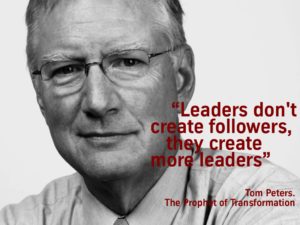Coaching high potentials early in their careers resulted in big paybacks for Atlantic Corporation (not the company’s real name).
Coaching High Potentials – Why Atlantic Invested
Twelve year’s ago, Atlantic’s CEO decided to focus on developing the company’s future leaders. To this end, he measured and rewarded executive team members for developing their successors.
The movement cascaded through the organization. Managers at every level identified and developed one or more high potential successors. Atlantic created a comprehensive leadership development program. Apart from that, each manager decided how he wanted to invest in growing potential successors.
Marvin, the head of engineering, decided coaching high potentials was a sound investment that would offer big payoffs. So, any identified high potential in engineering had the opportunity to work with a coach. I was fortunate to be retained for coaching high potentials in Marvin’s organization. We identified emotional intelligence, strategic thinking and business acumen as critical competencies for future engineering leaders. (For an excellent article on the role of emotional intelligence in engineering, read what a senior engineer at Google has to say on the subject.)
Payback
Within three years, high potentials throughout Marvin’s organization had been promoted to more senior roles. Marvin’s peers took notice. First they complained. Too many leaders were coming from engineering. Then they took action, following Marvin’s lead.
In addition to coaching, Marvin assigned high potentials to relevant stretch assignments. He guided them along the way. He opened doors of opportunity for each of them, and for many others as well. Sometimes he had to push people through. Regardless of their reluctance, Marvin’s proteges were grateful. They moved on and out of Marvin’s organization. They led other functions, worked in other countries and continents. Twelve years later three of Marvin’s former high potentials are leading at the C-suite.
By contrast, some companies offer coaching only to their most senior leaders. But at that point leaders probably have to unlearn bad habits.
Learning is difficult. Unlearning is more difficult.
Developing good leadership habits at the outset, and continuing to practice over the years, is but one advantage of coaching high potentials early in their careers.The ROI shows up faster, can be easier to achieve, and lasts longer.
Marvin’s Garden of Leaders
Recently, I was honored to be at an intimate gathering celebrating Marvin’s career. Most of his proteges attended. So was the man who selected Marvin as a protege early in his career. I was swimming in a sea of leaders who lived Tom Peter’s words.

Marvin lived his career well. As he and I looked out on the group, I described the view.
“This is your garden. You selected, nurtured and grew these people over the course of your career. I cannot imagine a more beautiful legacy.”
He responded, “Long after I’ve forgotten about the great quarter we had in any given year, the business challenges we faced and overcame, I will remember every single person in this garden and what they mean to me.” Marvin also gave me a gift. He thanked me for being part of his journey. If it’s appropriate, and even if it’s not, I have to say it. I love Marvin and am honored to have shared this journey with him. Like Marvin’s proteges, I’m also grateful to be among those for whom Marvin opened doors of opportunity.

